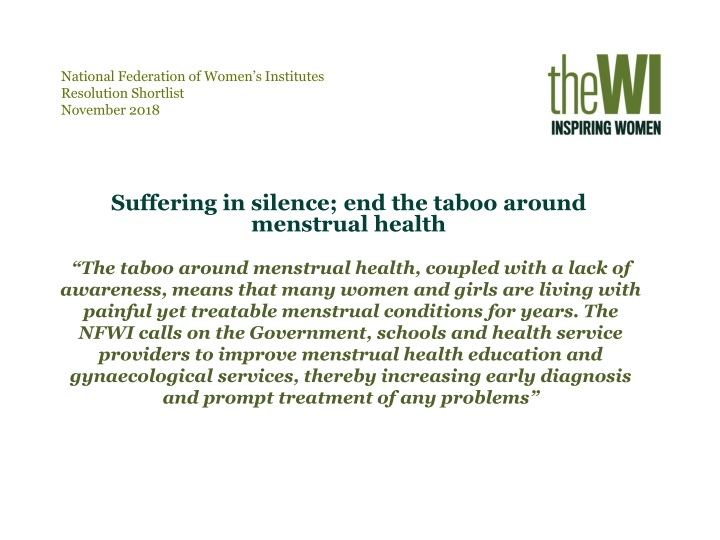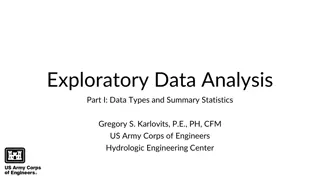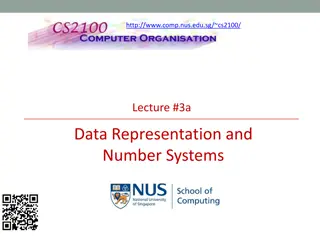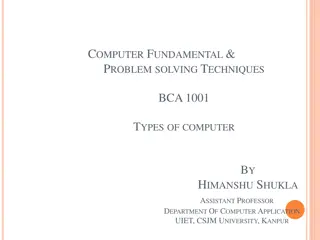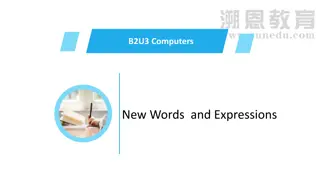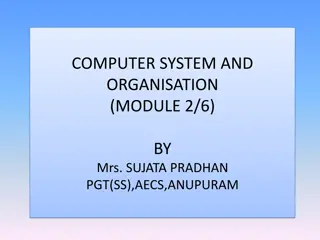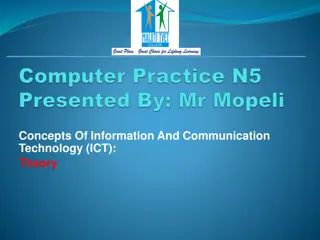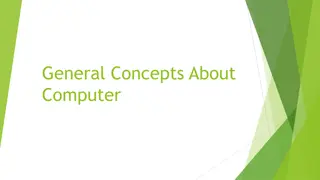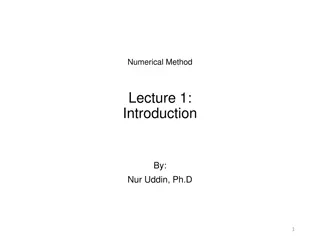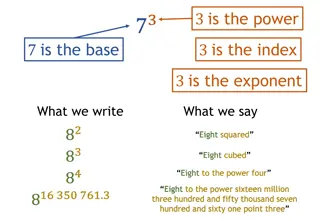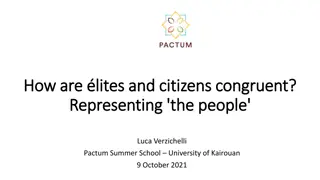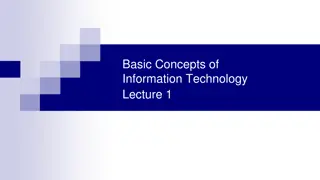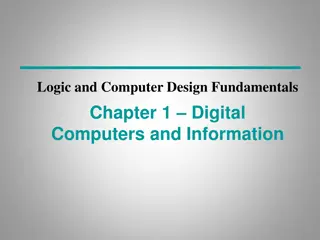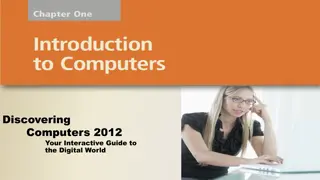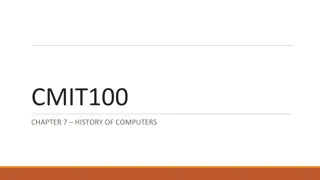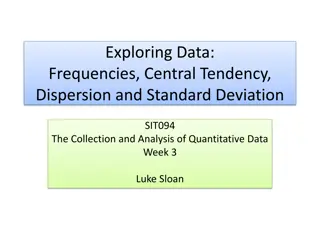Data Representation in Computers: Numerical Challenges
Computers rely on binary representation for numerical data, posing challenges for signed integers and real numbers due to the exclusive use of zeros and ones. This finite representation of infinite number systems can lead to accuracy loss in calculations. Different methods like Binary-coded Decimal (BCD), signed-magnitude representation, and 9's complement are utilized to handle these challenges and efficiently represent data in computers.
Download Presentation

Please find below an Image/Link to download the presentation.
The content on the website is provided AS IS for your information and personal use only. It may not be sold, licensed, or shared on other websites without obtaining consent from the author.If you encounter any issues during the download, it is possible that the publisher has removed the file from their server.
You are allowed to download the files provided on this website for personal or commercial use, subject to the condition that they are used lawfully. All files are the property of their respective owners.
The content on the website is provided AS IS for your information and personal use only. It may not be sold, licensed, or shared on other websites without obtaining consent from the author.
E N D
Presentation Transcript
National Federation of Womens Institutes Resolution Shortlist November 2018 Suffering in silence; end the taboo around menstrual health The taboo around menstrual health, coupled with a lack of awareness, means that many women and girls are living with painful yet treatable menstrual conditions for years. The NFWI calls on the Government, schools and health service providers to improve menstrual health education and gynaecological services, thereby increasing early diagnosis and prompt treatment of any problems
Outline of presentation What is the scale of the problem? The current situation in the UK How the WI could work on this issue if it was passed Arguments for the resolution Arguments against the resolution Further information
What is the scale of the problem? 1 in 5 women in the UK experience heavy periods, yet more than half never speak to their GP about it. 48% of girls in the UK are embarrassed by their periods. Only 22% feel comfortable discussing their periods with their teacher. 14%of girls say they did not know what was happening when their periods started. 49%of girls have missed an entire day of school because of their periods, of which 59% have made up a lie or an alternate excuse.
What is the scale of the problem continued It is estimated that around 62% of women who have experienced it are not aware that heavy periods are a medical condition. It is estimated that in the UK: 1 in 10 women (or 1.5 million) suffer from endometriosis; 1 in 3 suffer from fibroids; and 1 in 5 suffer from polycystic ovary syndrome . It is thought that 30-50% of women with infertility will have endometriosis. While there is no cure it is treatable, but on average it takes 7.5 years to get a diagnosis.
The current situation in the UK The NHS recommends that women see their GP if they re worried about their periods. However, evidence suggests that some women are not taken seriously by their doctors when they present with symptoms. 40% of women with endometriosis need at least 10 GP appointments before being referred. Endometriosis UK is calling for menstrual wellbeing to be included as part of the Relationships and Sex Education curriculum in England. In September 2017, a campaign was launched by Wear White Again to encourage women to visit their GP if they are experiencing heavy periods.
How the WI could work on this resolution At local and regional levels- federations and WIs could raise awareness of the stigma surrounding menstrual health and help to tackle it by providing opportunities to talk about the problem within their communities. The WI could also bring the issue to the attention of healthcare providers. Nationally- the NFWI could support the APPG on Women s Health in its call for greater awareness of menstrual health among all healthcare professionals.
Arguments for the resolution Menstruation and gynaecological problems remain relatively hidden, and are specific to women. The WI could use its profile to shine a spotlight on the issue and change the nature of the conversation that people are having about menstrual health, so that more women come forward when problems appear.
Arguments against the resolution The Government is currently consulting on the RSE curriculum in England, which will be finalised by the time of the Annual Meeting in 2019. This is unlikely to be reviewed again in the near future. Is this aspect of the resolution therefore achievable?
Further information NFWI Public Affairs Department E: pa@nfwi.org.uk T: 020 7371 9300 https://www.thewi.org.uk/campaigns Endometriosis UK: https://www.endometriosis-uk.org Plan International UK: https://plan-uk.org/media-centre/plan- international-uks-research-on-period-poverty-and-stigma Video: This video by the BBC helps to explain Polycystic Ovary Syndrome: https://www.youtube.com/watch?v=KfFfKrUUjEI
